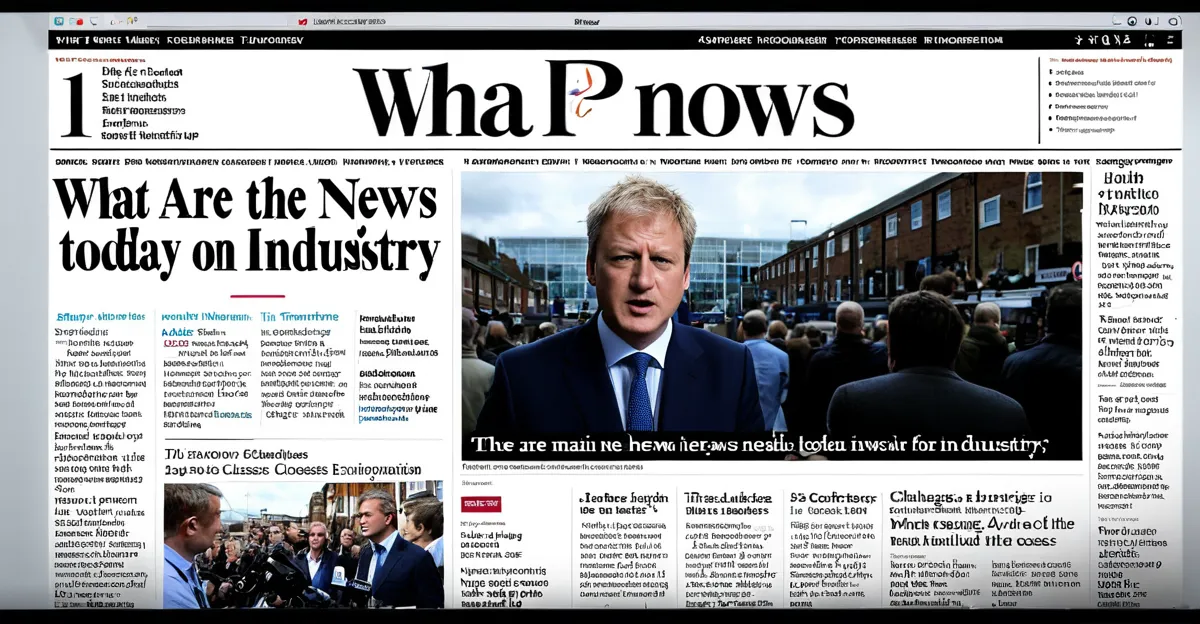Overview of Pressing Issues in the UK News Sector
The UK news industry challenges today are both complex and interlinked, centering on financial instability, digital transformation, and a notable erosion of public trust. Traditional news organisations grapple with shrinking print circulation compounded by declining advertising revenues, which intensify concerns over their financial sustainability. This threatens the classic business models that many UK media outlets have relied upon for decades.
Meanwhile, the current issues facing UK media include the urgent need to embrace rapid digitalisation. Newsrooms must innovate to meet changing audience expectations, where multi-platform content consumption has become the norm. Adapting to new digital workflows requires not only investment but also cultural shifts within media production processes.
In the same genre : How Are UK News Consumers Changing Their Habits?
Moreover, UK press problems extend beyond economics and technology. Public trust in media is deteriorating, influenced by widespread misinformation and scepticism about journalistic integrity. This deep-seated distrust calls for transparent practices and renewed engagement with audiences to rebuild credibility. Collectively, these concerns form the foundation for deeper investigations into the sustainability and future of UK journalism.
Financial Sustainability and Revenue Struggles
Financial challenges UK news outlets face stem largely from declining print circulation and shrinking advertising revenues. Traditional media business models, heavily reliant on print ads, are under severe strain, forcing many organisations to rethink survival strategies. The question arises: how are UK news organisations adapting to this revenue crisis?
In the same genre : How are UK cities adapting to climate change?
Declining ad revenue has compelled publishers to explore alternative streams. Initiatives like paywalls, memberships, and subscriptions are increasingly critical to sustaining operations. Philanthropy and grants are also emerging as supplementary but less predictable income sources. However, building reliable digital revenue remains difficult amid competition and changing consumer habits.
Many organisations struggle to transition from print-centric models to digital-first approaches that generate sufficient income. The balance is delicate: charging for digital content risks alienating audiences, while free content limits direct revenue generation. Consequently, UK press problems in financial sustainability are a pressing concern, requiring innovative, multifaceted business models to ensure long-term viability.
Navigating Digital Transformation
Adapting to rapid digital transformation media presents one of the most profound UK news industry challenges. Traditional newsrooms face pressure to innovate workflows, incorporating new technologies to deliver content efficiently across platforms. This shift is not just technical but cultural; journalists and editors must embrace tools like data analytics, multimedia storytelling, and real-time updates to stay relevant.
The current issues facing UK media include coping with changing reader habits. Audiences now consume news on mobile devices, social media, and apps, demanding content that is accessible, engaging, and immediate. This requires reshaping editorial strategies to create diverse formats, from podcasts to interactive articles, appealing to fragmented audiences.
Moreover, UK press problems in digital transformation extend to resource allocation. Smaller outlets especially struggle to secure funding for technology and training. Despite these hurdles, digital innovation remains essential for survival. News organisations investing strategically in digital workflows can better respond to evolving audience needs and compete in an increasingly crowded information landscape.
Combatting Misinformation and Fake News
Misinformation UK media faces today profoundly affects public trust and the credibility of journalism. Widespread disinformation, especially on social media platforms, complicates efforts to provide accurate news. This proliferation raises a crucial question: how do news organisations maintain news accuracy amid such challenges?
To answer, many outlets have introduced rigorous fact-checking protocols and invested in verification teams dedicated to identifying false claims. These measures aim to restore confidence by demonstrating a commitment to truth. Beyond internal safeguards, collaborative initiatives between media companies and independent watchdogs have emerged to counteract disinformation more effectively.
Efforts extend to technological solutions, such as AI-driven tools to detect misleading content quickly, enhancing newsroom innovation in tackling UK press problems linked to misinformation. However, challenges remain as misleading narratives often spread faster than corrections. Continued emphasis on transparency and public education is vital to help audiences discern credible sources.
In summary, combatting misinformation in the UK media is a multifaceted effort addressing the current issues facing UK media, requiring a combination of editorial diligence, technological innovation, and collaborative responses to protect news accuracy.





